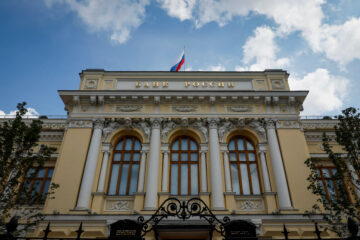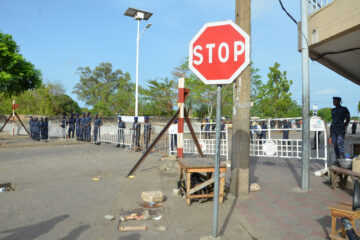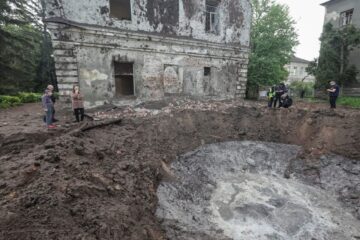German, French leaders take new Ukraine peace plan to Kiev, Moscow
Reuters
The leaders of Germany and France announced a new peace plan for Ukraine on Thursday, planning to fly together to Kiev and Moscow with a proposal to resolve the conflict that could be "acceptable to all".
The coordinated trip by Chancellor Angela Merkel and President Francois Hollande comes as rebels advanced on a railway hub held by Ukrainian troops after launching an offensive that scuppered a five-month-old ceasefire.
With Washington talking of arming Ukraine for the first time, U.S. Secretary of State John Kerry also visited Kiev on Thursday. He had no plans to go to Moscow and was not involved in the Franco-German initiative, although he supported it.
Moscow confirmed plans for the meeting with Merkel and Hollande and said it hoped the talks would be "constructive". A presidential aide in Kiev said it awaited the talks with "restrained optimism".
The Franco-German plan looks like an eleventh-hour bid by Europe\’s core powers to halt the escalation of the conflict ahead of diplomatic deadlines that are likely to make east-west confrontation even worse.
German and French officials gave few details in public of the substance of their new proposals for fear of damaging the delicate diplomacy involved.
Peace talks between the warring sides collapsed on Saturday in Belarus. EU leaders are expected to consider new sanctions against Moscow next week, and Germany hosts world leaders at a conference over the weekend at which Ukraine is expected to head the agenda.
"Together with Angela Merkel we have decided to take a new initiative," Hollande told a news conference. "We will make a new proposal to solve the conflict which will be based on Ukraine\’s territorial integrity."
He and Merkel would meet President Petro Poroshenko in Kiev on Thursday and Russia\’s Vladimir Putin in Moscow the next day.
"For several days Angela Merkel and I have worked on a text … a text that can be acceptable to all," Hollande said.
Merkel\’s spokesman Steffen Seibert said in a statement: "In view of the escalating violence in recent days, the Chancellor and President Hollande are intensifying their efforts, which have been going on for months, for a peaceful settlement to the conflict in eastern Ukraine."
German Foreign Minister Frank-Walter Steinmeier, visiting Poland, played down the prospect of a breakthrough.
"I don\’t want to talk about the chances (of success). At this stage there is hope, rather than chances."
NATO says Russia has sent weapons, funds and troops to assist the rebel advance, negating a ceasefire in eastern Ukraine where war has already killed more than 5,000.
Moscow denies involvement in fighting for territory the Kremlin now calls "New Russia".
Speaking after meeting Poroshenko in Kiev, Kerry said Washington supported diplomacy, but would "not close our eyes" to Russian tanks and troops crossing the border.
"We are not seeking a confrontation with Russia. No-one is. Not Poroshenko, not the United States, not the European Community," Kerry said. "We are very hopeful that Russia will take advantage of our broad-based, uniform acceptance of the notion that there is a diplomatic solution staring everybody in the face. That is what we want.”
In Washington, President Barack Obama\’s nominee for defense secretary gave the clearest signal yet that the United States could arm Ukraine. Ashton Carter told his Senate confirmation hearing he would "very much incline" toward supplying arms.
Moscow said it would consider any U.S. arms sent to Kiev to be a security threat.
Western advocates of arming Ukraine say it would raise the costs for Putin of pursuing Russia\’s objectives. Opponents worry about escalating a war with NATO and Russia actively aiding opposing sides, as in the proxy conflicts of the Cold War.
Ukraine\’s Poroshenko called for NATO arms.
"The escalation of the conflict that\’s happening today, the increasing number of civilian casualties… should move the alliance to provide Ukraine with more support," Poroshenko told Germany\’s Die Welt newspaper. "(That) includes, among other things, delivering modern weapons for protection and for resisting the aggressor."
The rebels have been concentrating on Debaltseve, a rail hub between their two strongholds of Donetsk and Luhansk, where a government garrison has held out despite being nearly encircled.
On Wednesday, the rebels appeared to have captured Vuhlehirsk, a nearby small town where government troops had also been holding out. The army said it was still contesting the town, but Reuters journalists who reached it saw no sign of areas under army control.
Residents who had not fled the shattered town came out of cellars where they had hidden during days of fighting. Four dead Ukrainian soldiers lay in a garden.
"Someone should come to remove these corpses, it is inhumane to leave them here to rot," said Sergey Kopun, 50, a metal worker, who had been sheltering with his wife and quadriplegic mother.
In Kiev, the military said on Thursday five soldiers had been killed and 29 wounded in the past 24 hours. Troops had fended off two attempts to storm Debaltseve.
War and years of corruption have brought Ukraine to the verge of bankruptcy. The central bank announced a sharp hike in interest rates to stave off economic collapse, but the hryvnia currency fell 30 percent on Thursday.
SOURCE: REUTERS
[do_widget_area inner_adsbar]








